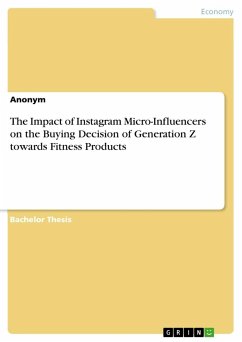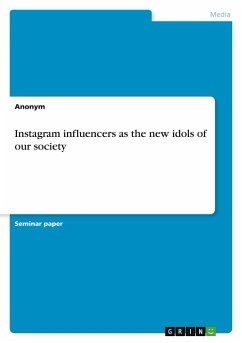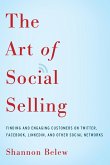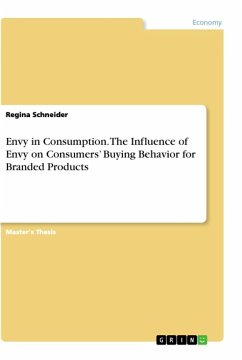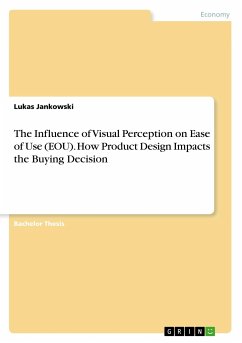Bachelor Thesis from the year 2020 in the subject Business economics - Offline Marketing and Online Marketing, grade: 2,0, Reutlingen University (ESB Business School), language: English, abstract: With fitness being a huge topic over the last couple of years, many fitness brands started collaborating with fitness-influencers on social media platforms. Especially micro-influencers on Instagram have gained attention in the previous years since they show high engagement rates and are perceived as credible sources of information. Particularly for young consumers, micro-influencer marketing has turned out to be an effective and contemporary brand communication strategy. The present bachelor thesis gives an overview of the effects of Instagram micro-influencers on the buying decision. Here, the impact on Generation Z towards fitness products was examined with an extensive literature review and a quantitative study in the form of an online survey. With the results of the study, insights on the relationship between fitness-related micro-influencers and Generation Z¿s buying decision could be gained. Although social media and fitness-related micro-influencers play an essential part in the worldwide growth of the fitness industry, there is a dearth of research about their relationship with the buying decision of consumers. Especially for product managers in the health and fitness industry, it can be beneficial to understand these connections to better leverage influencer dynamics in their social media strategies. Moreover, there is a lack of studies focussing on the implications of these micro-influencers on Generation Z specifically. Generation Z consumers are the most digital and most reliant in terms of influencer recommendations. As emerging adults in their developmental stage, they can still be influenced in terms of their fitness habits. Therefore, brands and businesses in the fitness sectors can profit from understanding their buying behavior, which allows them to adapt their influencer marketing campaigns accordingly. Finally, it cannot be disregarded that fitness is an issue that people will always be concerned with since it strongly affects their well-being. Against this background, this study aims to approach the following research question: How do micro-influencers on Instagram affect the purchasing decision of Generation Z towards fitness products?

